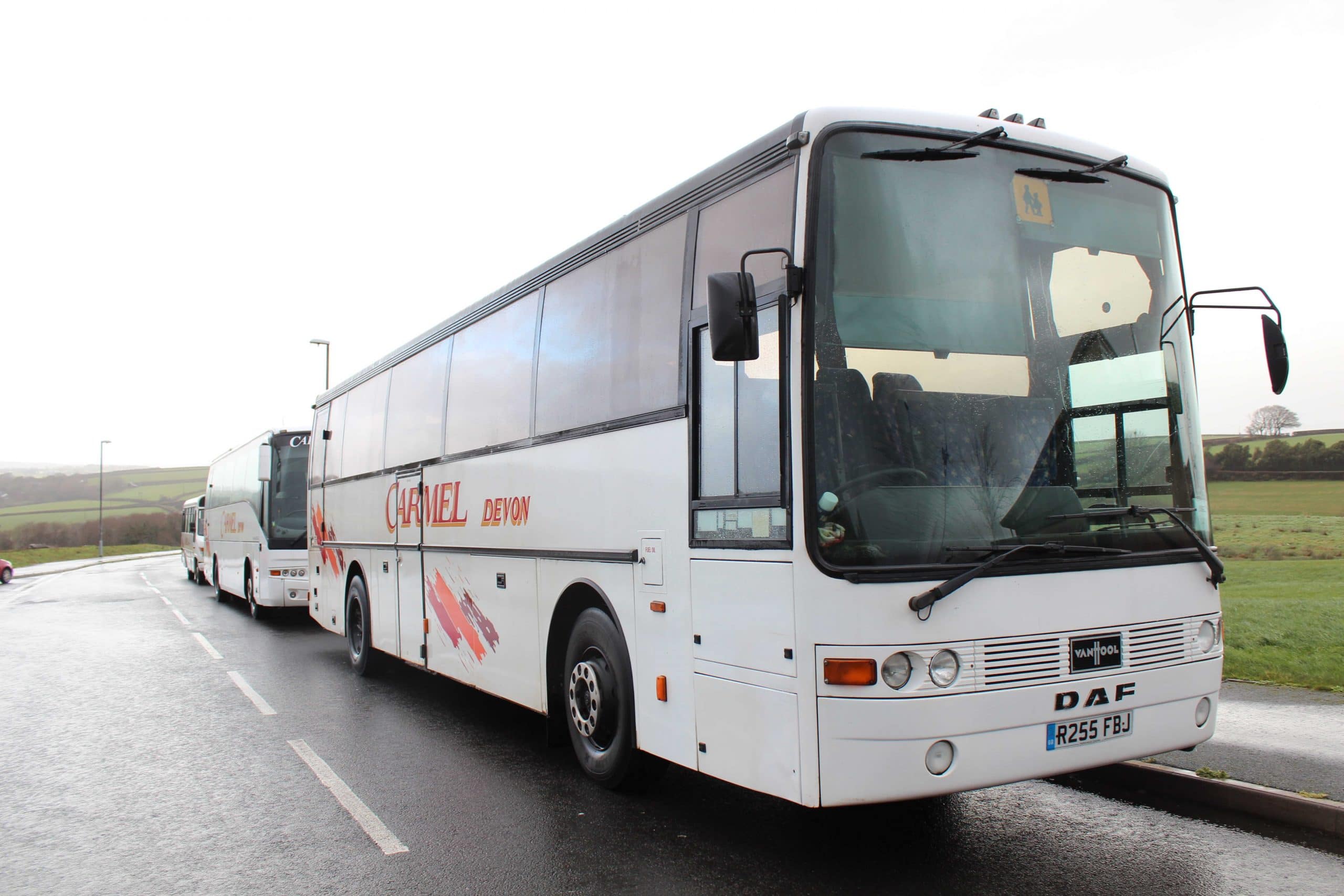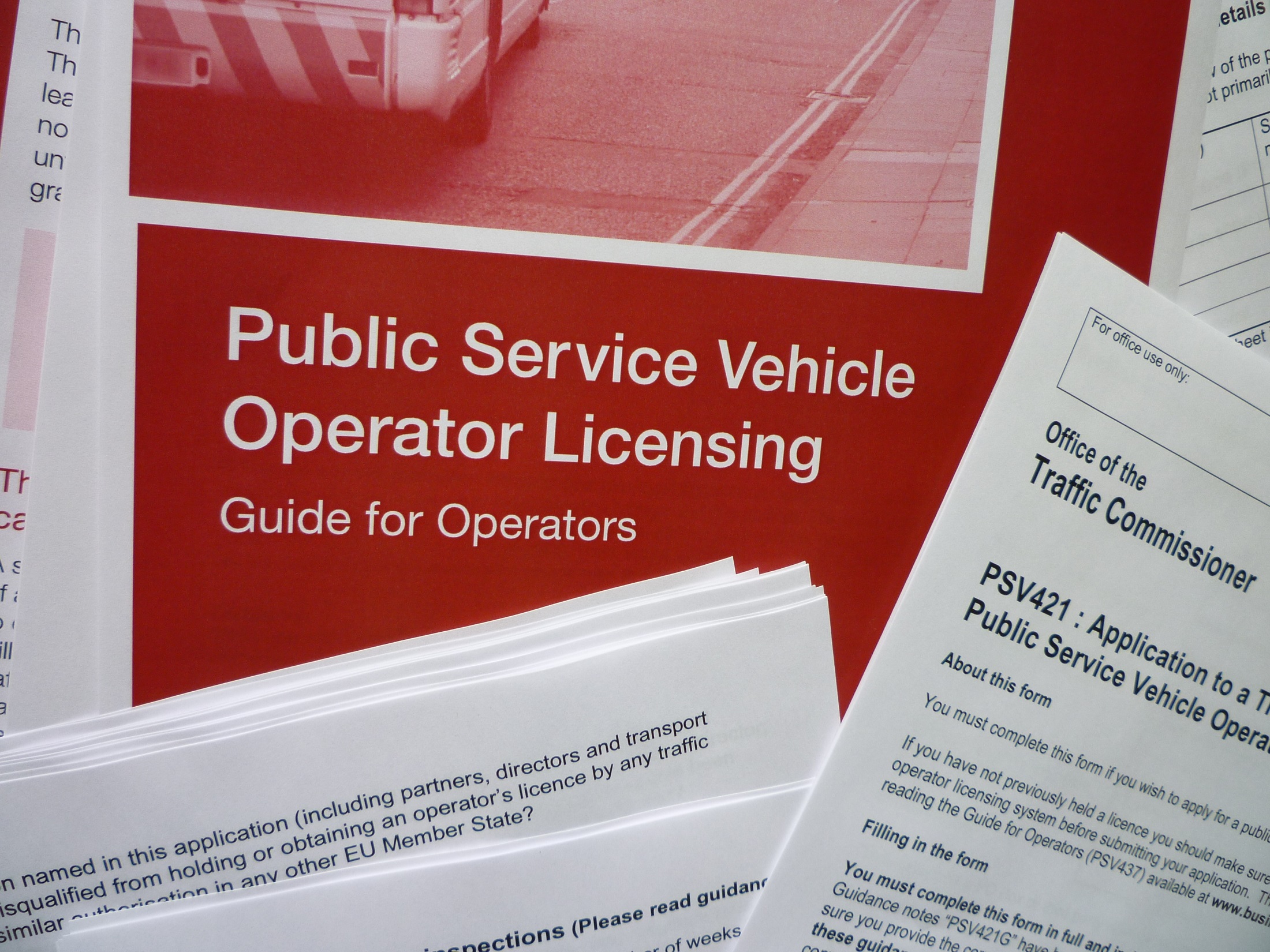A bid for a new licence by former Carmel Coaches Director Anthony Hazell has been refused by Traffic Commissioner Kevin Rooney
A bid for a new three-vehicle O-Licence by former Carmel Coaches Director Anthony Hazell has been refused by Traffic Commissioner (TC) Kevin Rooney at a Bristol Public Inquiry.
Mr Hazell was seeking a licence based at the premises of Carmel Coaches, Station Road, Northlew, Okehampton. The company’s international licence for 40 vehicles was revoked owing to severe maintenance shortcomings. Anthony Hazell was disqualified for 18 months from acting as a Director and Transport Manager (TM). An appeal against those decisions was dismissed by the Upper Tribunal.
Carmel Coaches was granted an international licence for 15 vehicles in December 2016 after the TC found that Mr Hazell’s good repute was restored. That licence was subsequently revoked for substantial maintenance shortcomings.
The TC found that Mr Hazell had lost his good repute as a TM and disqualified him from acting as such until he re-took and passed the Transport Manager’s CPC examination. An application for a new 10-vehicle international licence by the company, one of whose Directors and the TM was Mr Hazell, was refused by the TC.
Refusing Mr Hazell’s licence bid, the TC said that the proposed part-time TM, Graham Reynolds, was presented as a credible TM. Preventative maintenance inspections were to be outsourced to a Scania main dealer. The requirements for financial standing and for stable establishment were satisfied.
He was shown references from a former customer and from professional contacts. All were positive. Confederation of Passenger Transport (CPT) Regional Manager John Burch confirmed that Mr Reynolds had attended TM refresher training in January this year and that Mr Hazell had remained engaged with CPT, attending all meetings as well as being an active member of a local coach operators group.
However, there was very considerable adverse history over at least 10 years. Mr Hazell had been given the opportunity to re-enter the industry previously and it had ended badly. Mr Reynolds was relatively inexperienced as a TM and had more to learn. That was evident from his responses to questions in relation to drivers’ hours management and the maintenance contract. The maintenance contract was with the wrong entity, Carmel Coaches Ltd, and referred to defects being repaired at operator discretion. That was not much further forward than the position when Mr Hazell’s last licence was revoked.
There was no clear comprehensive mobile phone policy, with only a manuscript amendment indicating prohibition of mobile phone usage. Use of a mobile phone was identified as a possible causal feature in a fatal crash involving one of the applicant’s vehicles in 2014.
Mr Hazell had been reluctant to embrace change and has given no demonstration that he was a changed person, referring to previous good history when the reality was far from that. He continued to act and speak as though there had never been anything wrong in his operations despite the written decisions of four TCs and two Upper Tribunal judges. That inability to see his own weaknesses was further evident when Mr Hazell told the TC that his vehicles had enjoyed eight straight MoT passes last year. Review of the public record showed that not to be true.
Mr Hazell had failed to demonstrate that he had changed his ways. TC Rooney could not see how a part-time TM could exert the control that was necessary.



























